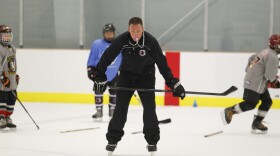A landmark study at the University at Buffalo has found young people who have suffered a concussion can continue to exercise moderately as part of their recovery.
Concussions are a public health problem, with perhaps four million of them a year around the country, mostly athletes. On a per capita basis, the highest rate is college wrestlers, and football and hockey players the most visible among males and soccer among females.
This study covered 103 teens, split roughly equally among males and females, with the value of moderate exercise showing that kids doing that coming back faster. Dr. John Leddy, a clinical professor and director of the UB Concussion Management Clinic, said the goal is to get them back into activity as soon as possible.

"We tell them not to be isolated in the room anymore, not to be isolated from their friends and family," Leddy said. "Welcome to start to get back into their lives by identifying any activity that increases their symptoms, whether that's physical or cognitive, and then then stopping the activity and then doing it again, but staying below that level that made it worse."
Leddy said concussion patients are frequently intense athletes and that moderate exercise makes them feel a little better psychologically. It is a change in medical advice from the last 20 years, which recommended restricted activity.
"Precipitated or increased any of their symptoms. That included physical activity, cognitive activity, even social interaction, going out with friends or family," Leddy said. "It was pretty much back then, you should really stay at home, probably in your room, with the lights dimmed."
Leddy said researchers in Boston and Philadelphia are following up on this study to expand the pool of those being treated, so issues like possible differences between males and females in concussions and treatment can be studied.
He said the young athletes appear to like the new approach because they are competitive and want to get back to their sports. The moderate exercise of this plan is a step toward getting back to their game.
"They are used to being active. They're goal-oriented. They get a concussion and they don't feel good," he said. "But people then tell them they can't do anything until they get better and that might take weeks. So this is giving them some sense of control over their recovery and, I think, psychologically, has significant benefits."





